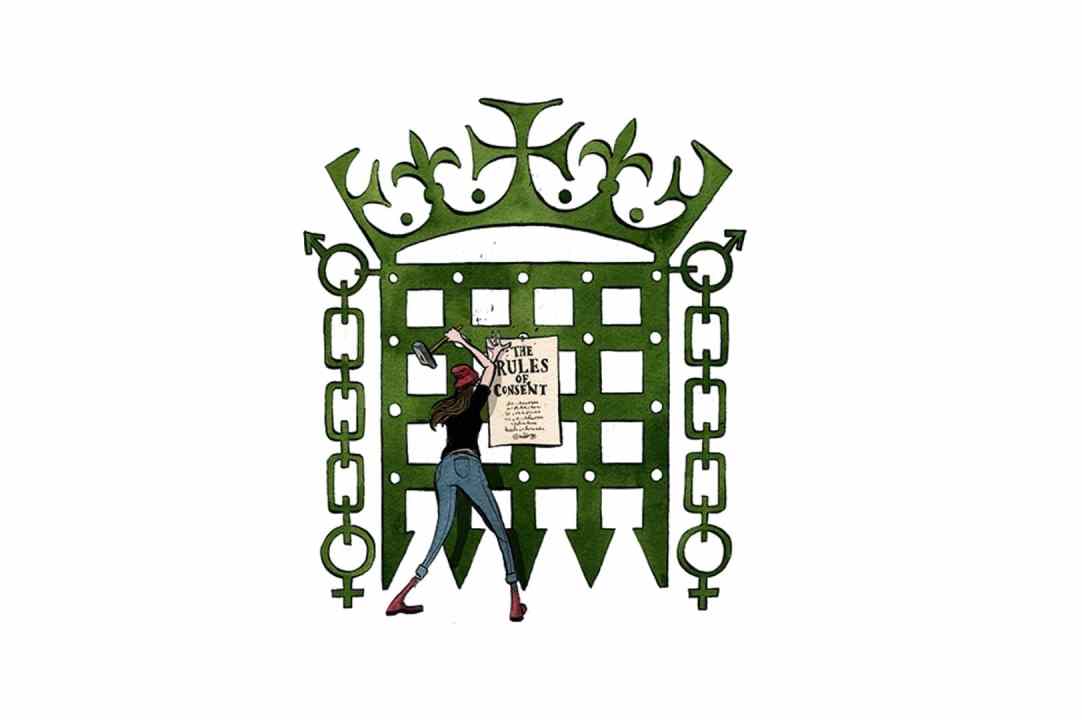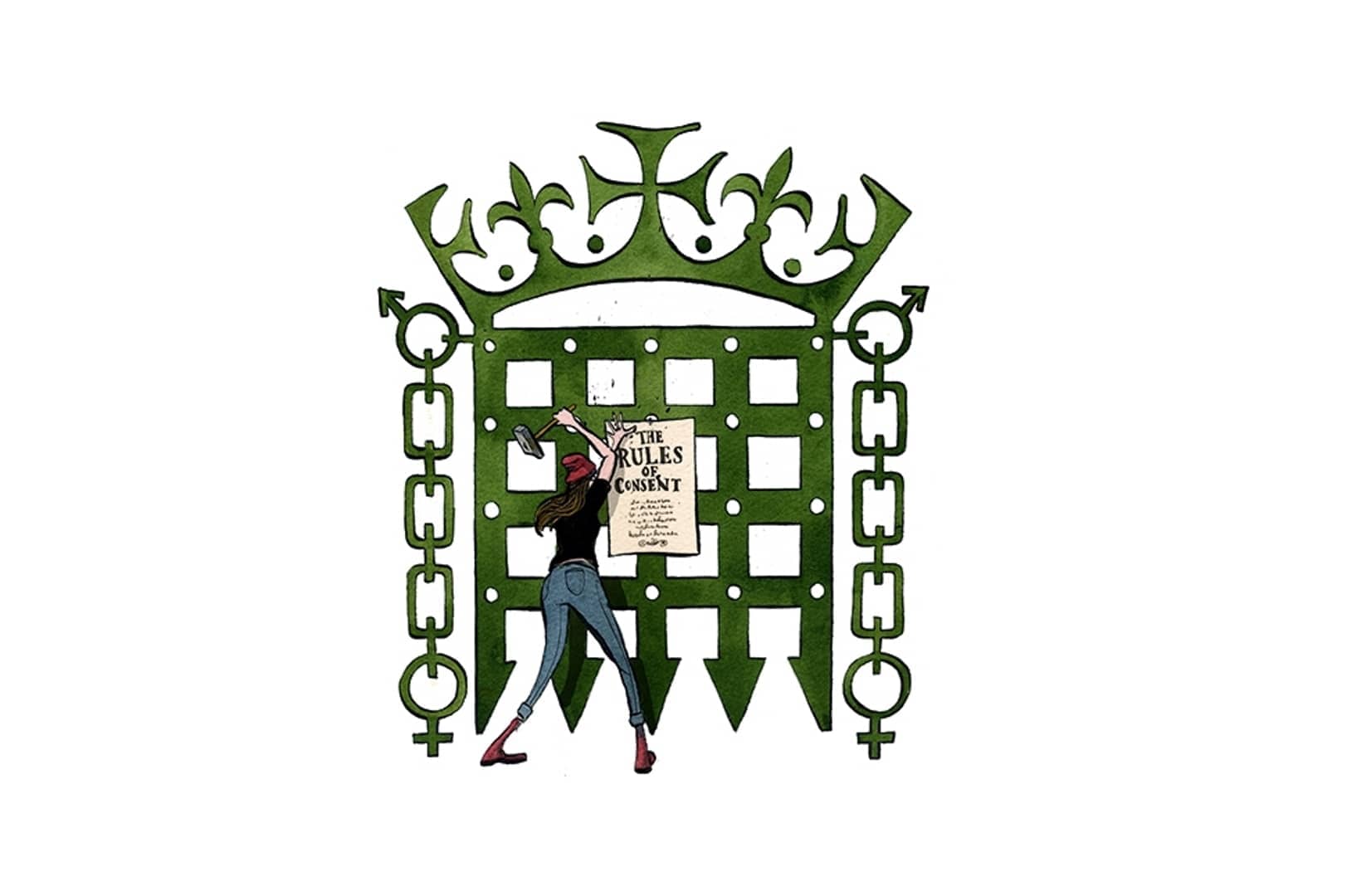For those of us who were reporting on politics way back in the 1990s, ‘Tory sleaze’ is a phrase that echoes down the ages. Though there had been plenty of run-of-the-mill scandals involving Tory MPs in the first couple of years of John Major’s premiership, things really took off after his ‘back to basics’ conference speech of October 1993.
‘It is time to return to core values, time to get back to basics, to self-discipline and respect for the law, to consideration for others, to accepting responsibility for yourself and your family,’ Major said. Within days the tabloid press was making merry, highlighting cases of Conservative parliamentarians apparently taking more of an interest in other people’s families than in their own.
Initially it was broad-shouldered bon-viveurs such as Steve Norris and Tim Yeo who took the brunt, but then events took a much darker turn with the suicide of the wife of the Earl of Caithness and the death by auto-erotic asphyxiation of Stephen Milligan.
The idea of Tory sleaze is once more very much on-trend
Major, whose own infidelity remained secret until after he left Downing Street, had not meant to put the private lives of his ministers and MPs in the firing line but that was the effect of his high moral tone.
When Tony Blair became Labour leader in 1994, with a clutch of brilliant spin doctors in tow, ‘Tory sleaze’ was turned into a key political weapon. It was wielded against a Conservative administration that seemed to be on its last legs. It was perhaps not the prime cause of the landslide Labour victory three years later but should still be remembered as a significant contributory factor.
Fast-forward nearly 30 years and Conservative parliamentarians should thank their lucky stars that their current party leader is most unlikely to preach moral rectitude given his own complicated private life. Nonetheless, Boris Johnson’s famously relaxed approach to these matters cannot shield them either from charges of hypocrisy or from the strictures of the criminal law.
The latest case of police investigating a Tory MP over allegations of historic sex crimes comes hard on the heels of an array of other notable scandals involving Conservative parliamentarians. Imran Ahmad Khan was found guilty by a crown court jury of sexually assaulting a 15-year-old boy and then Crispin Blunt rubbished the verdict (before apologising and deleting his statement). Khan’s conviction has prompted the Wakefield by-election, while Blunt is to stand down at the next election.
Neil Parish, MP for Tiverton and Honiton, was then shopped by female colleagues for watching porn in the Commons chamber and also stood down, ushering in another unwelcome by-election. David Warburton has been suspended from the party over allegations of cocaine use and sexual harassment. Rob Roberts was found to have sexually harassed a staff member. Last year, Matt Hancock was forced to stand down as health secretary for making whoopy with his adviser in contravention of draconian social distancing regulations that he had championed.
While social attitudes have mellowed in the three decades since Major inadvertently put his colleagues in the firing line, other circumstances are less forgiving this time round. The back-to-basics scandals occurred during the early stages of a long economic boom, with living standards rising sharply in the wake of the departure of sterling from the ERM. Yet the current examples and allegations of debauchery are taking place against the backdrop of a painful living standards crunch that is bound to leave voters in a generally disgruntled mood towards the government of the day.
Labour leader Keir Starmer has also taken a leaf out of the Blair playbook by presenting himself as representing integrity and decency in contrast to a Tory party full of people – from the Prime Minister downwards – who refuse to keep to the rules they set for others. The news today that the Met has issued a further 20 fines as it concludes its investigation into Downing Street partying will only help support Starmer’s case, in spite of his own troubles over beergate.
More worrying still for the PM and his whips office is that the latest allegations seem to represent a tipping point. The idea of Tory sleaze is once more very much on-trend. Every Sunday newspaper is likely to be seeking its own variation on the theme.
While it is true that there are also recent examples of appalling misconduct by Labour MPs – including criminality – they just don’t seem to garner the same level of attention as the misdeeds of representatives of the governing party.
The two biggest dangers for Johnson’s administration are first that this is all starting to feel very fin-de-siecle for a party that has been in power now for 12 years – the last days of the Roman empire and all that – and secondly that there could be a lot more out there for the press to find and that some of it could be even worse.








Comments